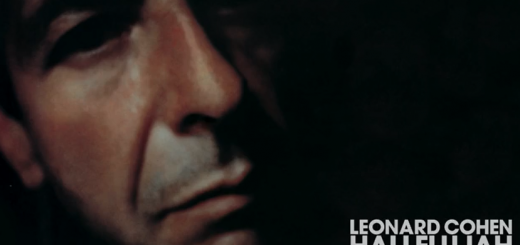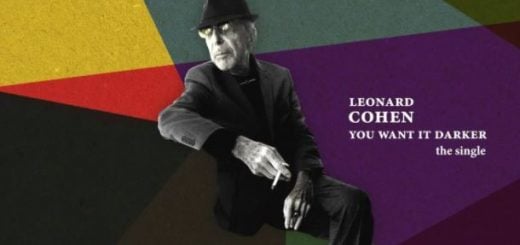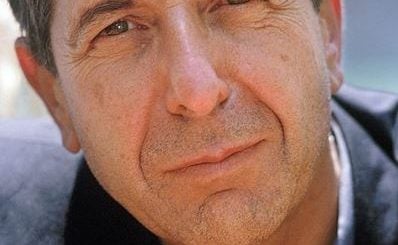Leonard Cohen’s “Who by Fire” Lyrics Meaning
There are two main inspirations behind Leonard Cohen’s “Who by Fire”. First and foremost is the fact that this song is basically an extended version of part of a Jewish prayer known as the Unetanneh Tokef. Cohen was familiar with this prayer due to the fact that he was raised under said religion.
Second would have reportedly been Leonard’s experiences in Israel during 1973 and his support of the nation, who at the time was engaged in the Yom Kippur War.
A Song of Death
With that noted, what we’re dealing with here, most simply put, is a song of death. For instance, the phrase “who by fire” would more fully read, in context, ‘who will die by fire’. And just as there are a million and one ways to leave this earthly plane, the vocalist goes on to mention a number of possible means by which a person can pass away, such as “by water” or “very slow decay”, in addition to noting various times in which such can transpire.
And yes, it does all sound kinda old school at first. But then Cohen gets to mentioning the likes of “barbiturate(s)” and “powder”, with the former supposedly being a reference to suicide and the latter, logically, overdosing on hard drugs like coke. Indeed, some will die by their “own hand”, while others “by accident”, at the “command” of someone else or what have you.
Who Shall I Say Is Calling?
What makes this piece more intriguing is that each verse concludes with the question “who shall I say is calling?”
What that is supposed to mean, even with Cohen’s explanation is tow, isn’t really abundantly clear. But apparently it is along the same line as the rest of this song. Or as implied by some analysts, perhaps in the days of old, back when Unetanneh Tokef was first written, death was perceived more as an act of God.
Or in any event, as the legend goes, its lyrics were composed by a rabbi who was on the verge of dying a martyr, and of course such an individual would be thinking in a very spiritual way.
So what Leonard did was take a particular segment of Unetanneh Tokef and modernize it as a citizen of the 20th century. For instance, it was obviously not in the original author’s mind to include death by self-inflicted or self-induced causes, both of which though are kinda common nowadays.
Or another way of looking at Leonard Cohen’s interpretation is that at the end of the day, no one really knows how they will go. And it is interesting to once again note that his visits to the frontlines of an actual war is what, in a sense, spurred all of this.
So, it’s as if most war songs are focused on the bullet or the bomb. But since this one also sports an old-school, religious foundation lyrically, that would be what caused the singer/songwriter to take a grander look at death, which can in fact come about via innumerable means.

When was “Who by Fire” released?
Leonard Cohen (1934-2016) managed to put out 15 studio albums during his lifetime (with his entire discography being under Columbia Records, whom Leonard signed with circa 1967).
“Who by Fire” is from the fourth of those outings, a project titled “New Skin for the Old Ceremony”.
This song was officially released on 11 August 1974. The year prior, Cohen spent some quality time in Israel which, as noted earlier, was one of the inspirations behind this track.
Furthermore, there is a book about that entire experience which is named after this song, i.e. Who By Fire: Leonard Cohen in the Sinai (2022) by one Matti Friedman.
Credits for “Who by Fire”
Leonard Cohen wrote “Who By Fire”, and he produced the song with John Lissauer.










Just to add – the prayer is recited during the Rosh Hashonna prayers as it implies that it’s God’s will how and when someone dies – this is then set on the Yom Kipper – the day of atomenment – it is ‘said’ that someone who dies just prior to Yom Kippur had no sins to antone and someone who dies on or just after has been atoned for any sins.
I love the prayer and believe that was the inspiration, but there’s another element here that is very earth-bound and topical. The deaths he mentions here are not natural, they come from excess and pain and strong drugs nd horrible accidents – Cohen carries a world-weary sadness that is so profound in this song it makes me consider all of life in the deepest sense. And is “lonely slip” a reference to Marilyn Monroe, and “avalanche” to all the Mt. Everest big-shots who perish going beyond their capabilities, and the “powder” he mentions – snow powder or cocaine and heroin? Cohen is a consummate artist with so many layers of meaning buried in songs of delicate beauty – I still recall as teenager sitting in a movie theater watching McCabe and Mrs. Miller and hearing that gravelly voice and the haunting melodies. A treasure of a man for all to appreciate.
Donna – so beautiful! We must be the same age when I read your comments. I am 66 and remember McCabe and Mrs. Miller so well.
Thank you for your input, it was even more enlightening than the article. Not a slight on the article, it was top notch as well.
What exactly does “who shall I say is calling mean”? Who is the supplicant directing the question to and why?
In my mind it’s a search for god. He leaves it open if he finds him behind the calls so we can ask ourselves
In poetry, “who shall I say is calling?” could be interpreted as the speaker (poet) almost as a butler. He is opening the door and asking the “visitor” (death) in which of these disguises (ways to die) he is calling.
Good comment, Heidi. Thanks!
Who is calling? God or the devil
To me Cohen was just asking why? Seems like most of the deaths are either untimely, unexpected, unfair, or even unnecessary. I see religious questions about suffering, sense, justice, god himself. I think it goes way deeper.
I don’t think the devil was on his mind. It rather seems to me that he is questioning if god is making all these “calls” or, if they are just random events, pointless to explain and attribute to anybody.
Enjoyed reading the article.
Who shall I say is calling? I imagine the angel of death or the reaper!
Agree with you Emma
That’s how I imagined the song to mean
Soul touching!!
“Who shall I say is calling?” Who is the murderer
Well, the obvious answer is that at that time Cohen was questioning the authority of who was making those calls of death. In simpler words, he was doubting the existence of God. This idea surely isn’t very fond for those who believe and who would want to see Cohen as an eternally firm believer, which he was not. And who is?
“Who shall I say is calling?” to me adds depth and mystery as only Leonard Cohen can. It leaves a haunted, hunted feeling but so delicately as if to cover the face of the indefinable, gently, slowly, finally, with a gossamer cover as one might at a funeral viewing. It could almost be the voice of the undertaker. Aloof, clinical but certain matters need to be taken care of.